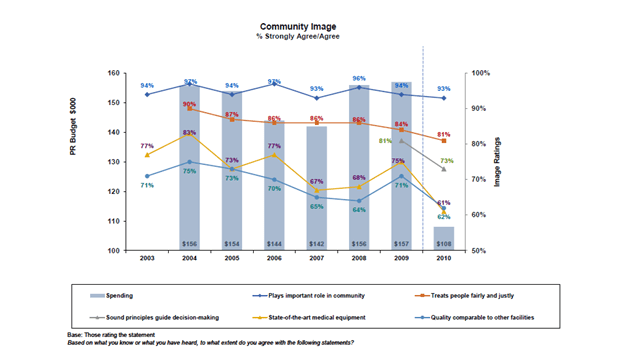What PR pros should learn from the courage of whistleblowers
AMEC’s Johna Burke analyzes the comms lessons from the book ‘A Sacred Duty’, a look at one PR pro’s efforts to fight government corruption and a public smear campaign.

There’s a lot of rumbling out there about misinformation and disinformation and what we can do to stop it.
But I have to ask you, what if preventing it meant putting your career on the line? Would you do it?
I recently read a great book by PR professional and friend Paula Pedene. Her story, “A Sacred Duty: How A Whistleblower Took on the VA and Won,” is a gripping tale of government corruption. It details how Pedene becomes trapped in a dishonesty campaign to ruin her while unethical leaders are gaming the system. Spoiler alert: Fortunately for all of us, she refuses to surrender to a system stacked against her.
In full disclosure, I personally know Pedene. We’ve served on PRSA boards and committees over the years, and I recognize her to be an exceptionally passionate individual of the highest ethical standard. So, it was grueling for me to watch her experience, in a media spotlight in front of tens of thousands, while she waged her whistleblower campaign. In the end, she won—and her perseverance earned her the prestigious PRSA Public Relations Professional of the year honors.
When I read her compelling story, it struck me that the complexity of the scandal boiled down to something that is not foreign in PR and communication reporting: emphasis only on the “positive,” including the use of charts and graphs. When pros fail to challenge collated results objectively, understanding both quantitative and qualitative outcomes, we can also fail to report independently.
Without this perspective, how can we objectively affect long-term organization and planning?
The desire to report positive results might be a noble goal—necessary to highlight the hard work entailed in managing reputation—but without independence and fairness, it often fails horribly. Your executive team needs to have confidence in the transparency and integrity of your reporting. The reality, unfortunately, is things are very rarely always positive.
Executives expect to see an ebb and flow in positive and negative data, and also expect you to identify and clearly express “the why” and “how” of your efforts to manage the tide. When there is trust in the data and ethical leaders at the helm, you’ll be revealing the proper path (with KPIs) to track your progress. When you don’t collaborate with the executive team on the truthful KPIs for your organization, you can lose sight of the overarching organizational goal(s), failing to demonstrate the impact of PR and communication. SMARTER objectives are always the best place to start.
When reporting results, you should strive to be consistent, transparent, truthful, and representative of the stakeholder experience. Ideally, you will show a correlation to your activities, outputs, outtakes and outcomes. When teams focus on the volume metrics of action and less on the outcome and impact, you risk eroding the trust and reputation of yourself, your team, and the organization.
Trust erosion is the elephant in the room. In this area, communication professionals must be incredibly diligent in maintaining data and information integrity with an eye to public distribution—it’s a classic case of being true to oneself, as well as to the data.
When you see a data story (and have access to the author) some pressing questions can be answered and, luckily, Pedene obliged me. She shared how in her annual budget she saw a disturbing trend. There was a decline in the community image ratings of their VA hospital. Since they had received multi-million dollar increases, she knew management kept cutting her budget, more so out of spite than funding.
She made a tough call to share the truth. Using raw data results from the Guidelines for Measuring Relationships community survey questions and overlaying them on top of the public affairs resources, (see the chart) it’s clear the image of the VA was fading, and it correlated to budget reductions.

When I asked her why she took such a bold move, she told me she couldn’t stand silently on the sidelines any longer and watch the good work thousands of employees and volunteers be squandered.
Pedene’s story reinforces the need for common sense goals, as well as a contrarian’s convoluted expertise at every level in any organization to avoid scandal, assure accountability, and ultimately guide one to success. Along with hard work and persistence, it takes integrity to do the right thing and use one’s voice to speak for those who cannot speak for themselves.
Pedene was forced to bear the brunt of management’s wrath, but she could also delve deep and blaze her trail through it. Ideally, our organizations will never need us to dig as deeply as she did, but if the occasion presents itself, one has “A Sacred Duty” to buoy one’s inner champion.
This book is an easy and fast read, and it reinforces that anyone can sit in the “seat” of a PR or public affairs pro, but not everyone can do the job.
Johna Burke is the global managing director for AMEC and a member of PR Daily’s Editorial Advisory Board.







